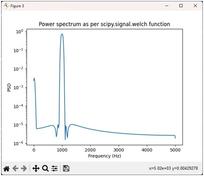10 Deep Learning Interview Questions and Answers
Explore 10 deep learning interview questions and answers focusing on CNNs, RNNs, and their deployment on Digital Signal Processors (DSPs).
Showing 22 posts (Page 1 of 1)
Advertisement
Explore 10 deep learning interview questions and answers focusing on CNNs, RNNs, and their deployment on Digital Signal Processors (DSPs).
Explore 10 interview questions and answers about fixed and floating-point DSP, covering key differences, applications, and trade-offs for job preparation.
Explore list of 10 interview questions and answers on Digital Signal Processing which will help interviewee pass the job interview for DSP engineer positions.
Ace your MATLAB interview with these 10 frequently asked questions covering operators, control flow, MEX files, scripts vs. functions, and more.

Explore the benefits and drawbacks of Digital Signal Processing (DSP), including accuracy, cost-effectiveness, power consumption, and implementation complexity.

Explore the key differences between analog and digital signal processing, their applications, and the conversion processes involved.

Learn the fundamentals of the CORDIC algorithm, its function for calculating trigonometric and hyperbolic functions, and common applications in signal processing.

Explore the differences between CPUs, DSPs, and FPGAs, including their architecture, programming models, performance, and suitable applications.

Explore Digital Signal Controllers (DSCs), specialized microcontrollers combining MCU and DSP strengths for real-time control and high-speed signal processing across various applications.

Explore Digital Signal Processing (DSP), its applications in various fields, key components of DSP chips, development tools, and a list of prominent DSP chip vendors.
A comprehensive list of key DSP terms including OFDM, FFT, interpolation, decimation, convolution, and various encoding/decoding techniques.
Explore DSP/FPGA evaluation boards and kits from vendors like MAXIM, Sundance, Xilinx, and Altera for IP core evaluation and development.
Explore key factors in DSP algorithm implementation, covering multipliers, barrel shifters, MAC units, ALUs, on-chip memory, parallelism, and pipelining for optimal performance.
Explore current Digital Signal Processing (DSP) job opportunities in hardware and software roles from LinkedIn, Naukri, and company websites.

Learn about echo cancellers, their technical specifications, test parameters, applications in VSAT and GSM, and find a list of manufacturers.
Explore the differences between floating-point and fixed-point DSPs in digital signal processing. Understand their architectures, precision, applications, and trade-offs.
Explore the in-demand field of Digital Signal Processing (DSP) jobs. Learn about required skills, top hiring companies, and expected salary ranges for DSP professionals.
A compilation of Numerically Controlled Oscillator (NCO) IC manufacturers, including Analog Devices, Texas Instruments, and more.
A curated list of RF, Wireless, and DSP job openings in WiMAX, WLAN, GSM, CDMA, and LTE technologies from various companies worldwide.
An introduction to the RISC-V processor architecture, its key elements, functions, and relevant links for further learning, including DSP applications.

Learn how to perform spectral analysis in Python using DSP libraries for time and frequency domain signal analysis. Includes code examples and plots.

Prepare for your DSP job interview with these essential 10 questions and answers. Covers architecture, filters, transforms, and more for hardware and software roles.
Advertisement